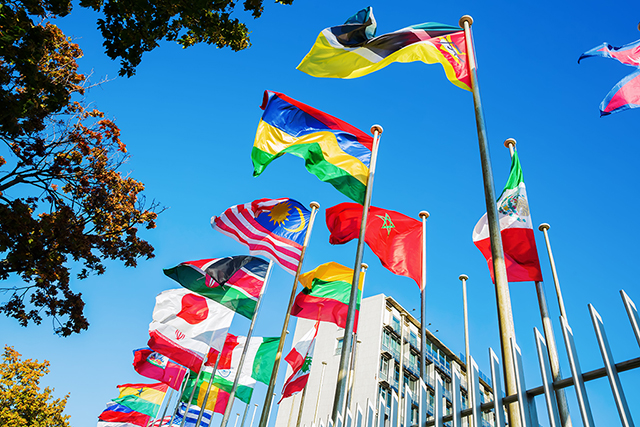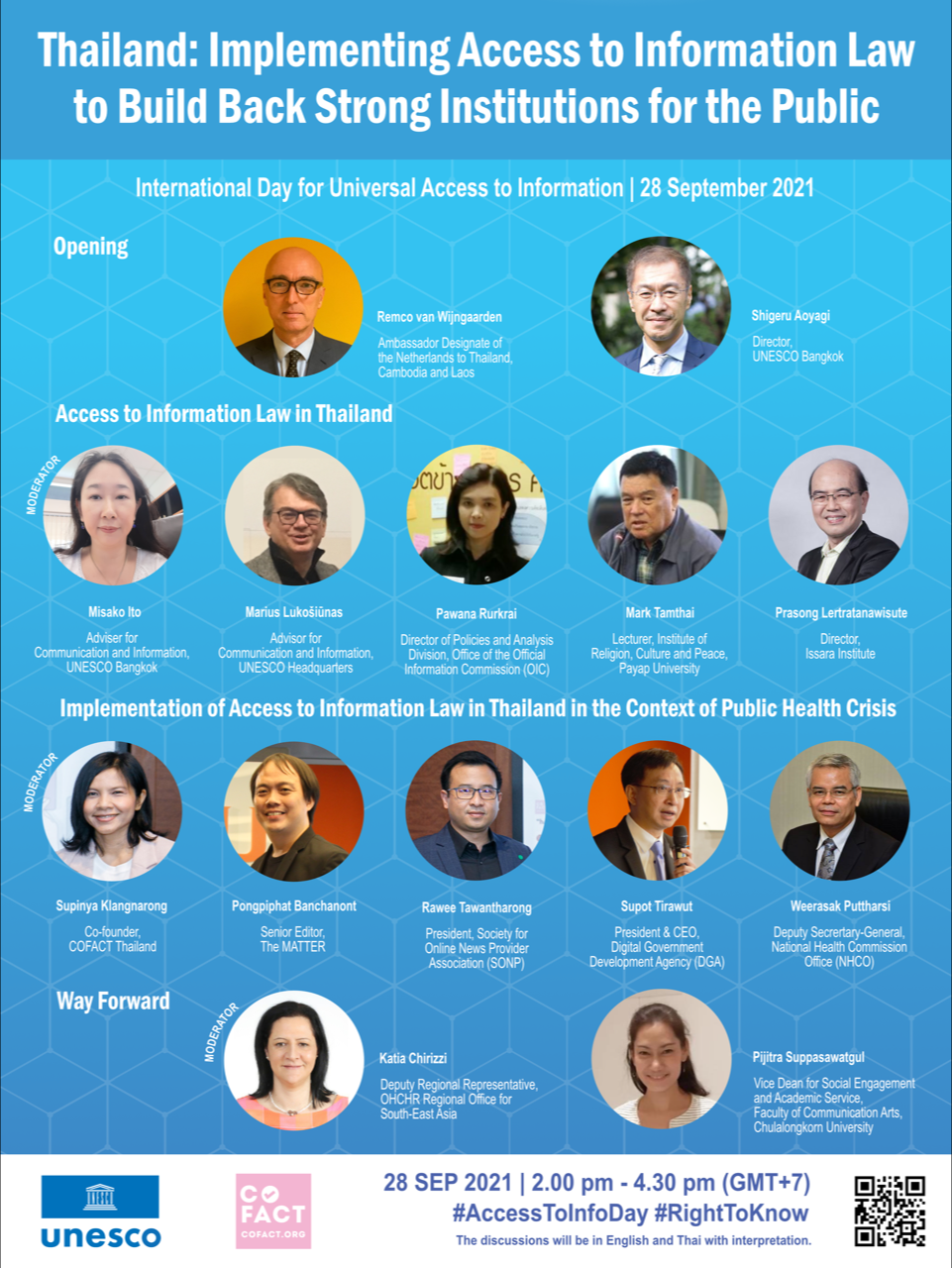The day highlights the importance of open data and access to official government records to encourage e-participation
Thailand’s celebration of the 2021 International Day for Universal Access to Information
Maintaining the world's diversity and cultural vitality requires the open and free flow of information and expression; in addition, at times when the world is experiencing a public health crisis, such as the COVID-19 pandemic, access to information can sometimes make the difference for people between a ‘life or death’ situation.
Every year, on 28 September, UNESCO collaborates with Member States in observing the International Day for Universal Access to Information (IDUAI). Established by the 74th United Nations General Assembly in 2015, the IDUAI serves as a reminder for UNESCO and Member States to regularly reaffirm their commitment to ensuring the adoption of legislation governing access to public information, and to progressively host initiatives for opening up to public access data and knowledge, and to strengthen the implementation of these legal guarantees.
This year, UNESCO Bangkok, in cooperation with the Thailand Office of the Official Information Commission (OIC) and COFACT, a civil society fact-checking network, organized the online public forum ‘Thailand: Implementing access to information law to build back strong institutions for the public’. More than 80 participants, including duty bearers from Thai government agencies and rights holders from media and civil society, joined together for a constructive dialogue on ways to enhance access to information in Thailand, and in particular to public health information, given the current pandemic.
In his opening speech, Mr Shigeru Aoyagi, Director of UNESCO Asia-Pacific Regional Bureau for Education, elaborated on UNESCO’s mandate to promote universal access to information and the current challenges pertaining to Thailand. ‘As the democratic space continues to shrink in the region, and the COVID-19 pandemic has occasioned multiple instatements of state-of-emergency decrees, the right to information in Thailand has been severely impacted’, Aoyagi stated. He went on to emphasize the importance of transparent, accountable and effective governance, supported by independent journalism producing verified information for public interest — all the more so in times of collective crisis.
In the discussion that followed, representatives from UNESCO, OHCHR Regional Office for South-East Asia, and experts from government agencies, academia and local news organizations offered a comprehensive overview of international standards for access to information and their relation to Thailand's Official Information Act. Progress has been achieved in access to information in Thailand as the number of claims has increased over the years. However, challenges remain, especially in reaching out to marginalized communities who may lack access to the internet. The majority of Thailand’s population may not be aware of the law, and thus it remains important to educate people and raise awareness on the benefits of access to information for them. This is especially the case in remote areas of the country. UNESCO Advisor, Marius Lukošiūnas, reminded participants that the right of access to information applies to all peoples. In addition, information must be made available in local languages, especially in a manner that benefits all disadvantaged communities.
Experts in attendance agreed that the legislation on access to information needs to keep pace with the times; even more important, the technology and mindset of information providers must be able to meet people’s needs at the present. Assistant Professor Pijitra Suppasawatgul, of the Faculty of Communication Arts of Chulalongkorn University, indicated that there is currently a great demand for disclosure of multiple categories of data in Thailand, such as national legislation, financial expenditure and vaccine distribution data. She pointed out that Thailand must develop more effective channels and online platforms to provide the public with official government data, and to encourage e-participation from the public in policy-making. Precise data and factual information are critically important resources for all, help people to follow policies and principles, and guide them in making timely decisions in emergency situations.
In the digital age, striking a balance between managing information overload, or an ‘infodemic’, and protecting freedom of expression and the public right to information is a formidable challenge for all countries in the region. However, all participants agreed on the need for a strong, dedicated oversight institution that operates independently and effectively.
Representatives from UNESCO and COFACT summarized the outcomes of this discussion and welcomed future collaboration with the Thai Government, local and regional media, and civil society. ‘The expertise shared by speakers provided UNESCO with many suggestions for our better support in the future’, said Ms Misako Ito, Adviser for Communication and Information of UNESCO Bangkok. She concluded by reiterating UNESCO's key messages for this year’s International Day, highlighting the goal of achieving equality and inclusion for all, so that no one is left behind in regard to their access to information and their ‘right to know’.








